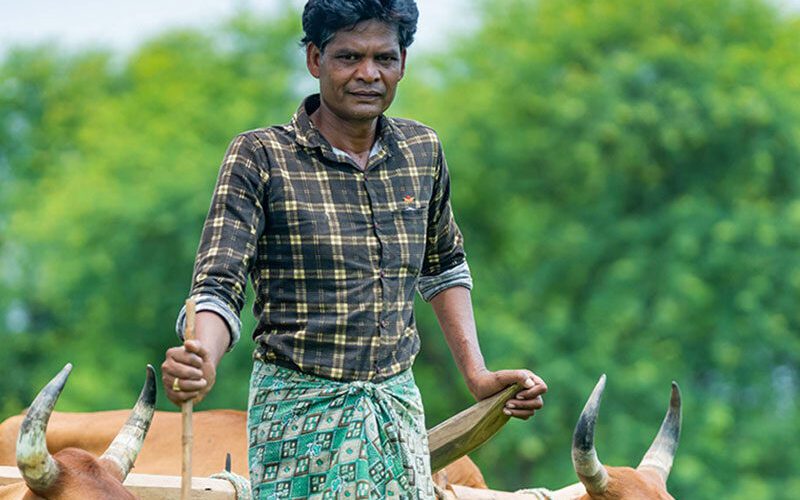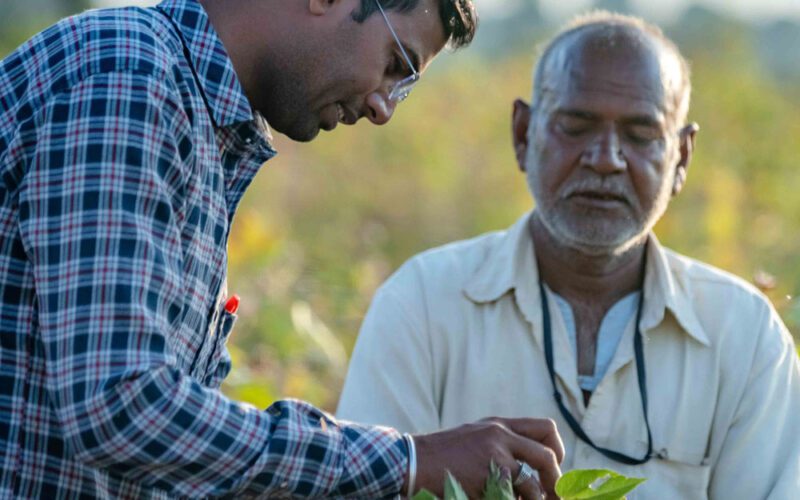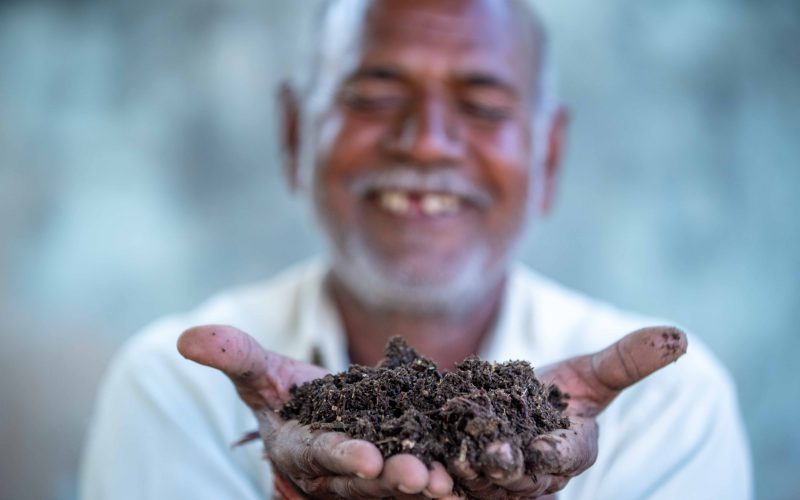
Why Organic Cotton?
Organic cotton is a powerful tool for transforming farming communities. It provides a route to improved livelihoods and income for farmers while promoting practices that safeguard the earth. Simply put, it’s better for people and planet.
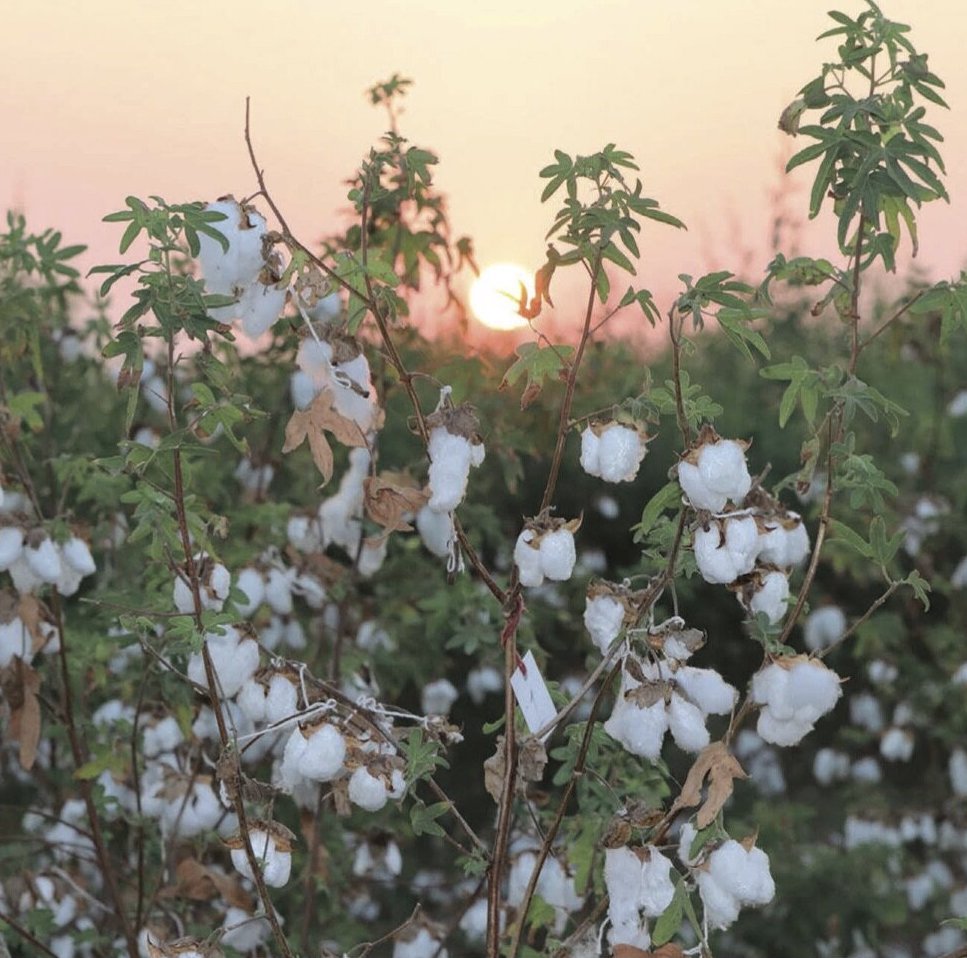
What is organic cotton?
Organic cotton is cotton grown in agricultural systems that work with nature, rather than against it. By eliminating the use of synthetic pesticides and GMO seeds, organic cotton offers an alternative model for more sustainable, regenerative cotton production which supports both farmers and the environment.
Organic farming systems have the potential to sustain and promote the health of soils, ecosystems, and people by relying on ecological processes, biodiversity, and cycles that are adapted to local conditions rather than using external inputs that could have adverse effects.
Why is organic cotton important?
Organic production brings financial benefits for farmers as they receive higher market prices for their cotton, while also bringing positive impacts to their lands. It can also be part of the solution to the threat of climate change, through its ability to reduce greenhouse gas emissions, store away huge amounts of carbon, and enable farmers to be resilient in an evolving climate. Currently, organic cotton accounts for 1.4% of total global cotton production – we want to scale that number by supporting farmers in sticking with or switching to organic cotton farming.
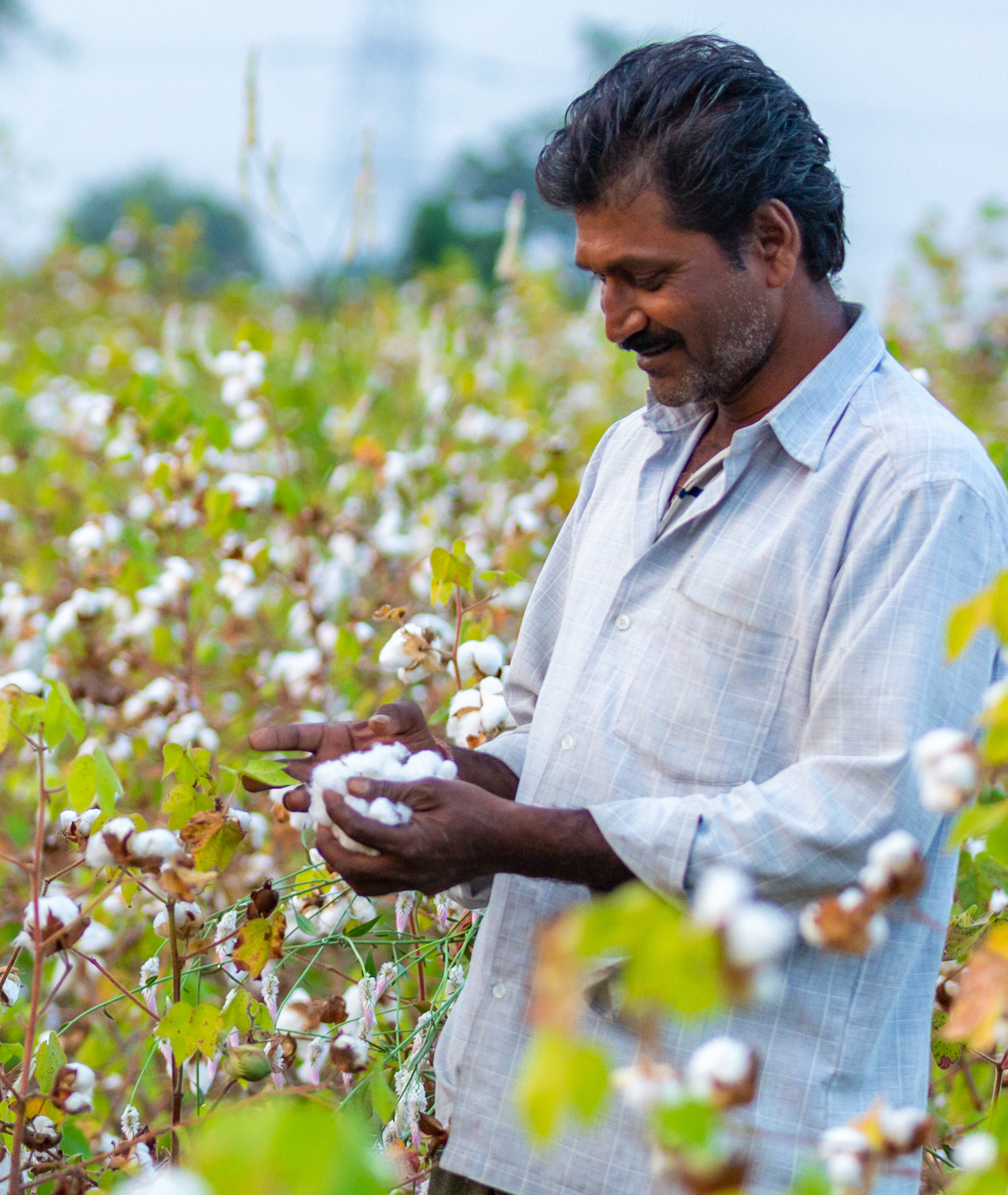
Transforming the lives of cotton farmers
Through our Farm Programme, organic cotton farmers receive an improved income through premium payments and guaranteed orders. We help cotton farmers convert to organic because we believe it’s important that farmers are compensated for their efforts and for safeguarding the earth’s resources.
Restoring our ecosystems
Organic farming is a holistic agricultural production system that works with, rather than against, natural ecosystems. Its production typically saves water waste and supports greater soil health and biodiversity. Organic cotton has the potential to mitigate global warming and ensures fertile soil and land for future generations.
The roadmap to change
OCA unites brands and retailers, suppliers and farmers around a common mission. Together, we challenge ‘business as usual’, increase global organic cotton supply and provide a roadmap for systemic change that benefits farmers. We empower our all our Contributors and Partners to contribute to reinventing the cotton industry for good.
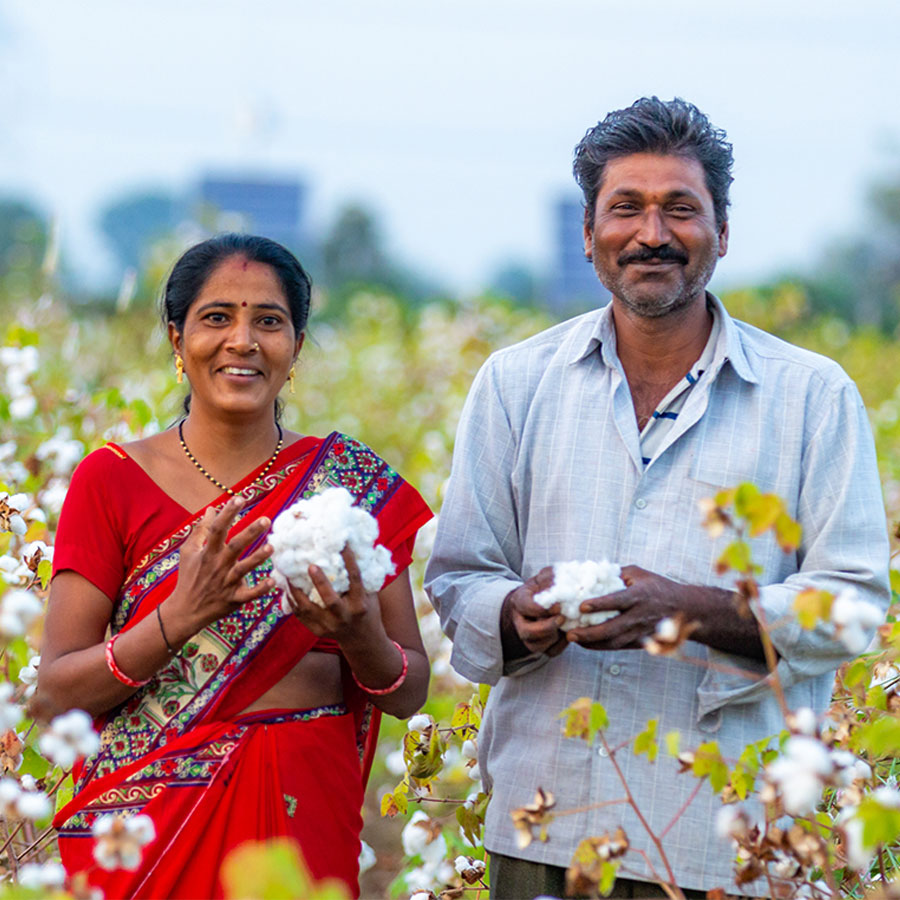
The Organic Cotton Effect
At OCA, we believe organic cotton is the catalyst for a truly sustainable textiles sector. We envision a future where, every time a farmer switches to organic cotton, there is a ripple effect of positivity; farmers earn more and their land and soils are fertile for future generations, protecting our planet. We call this the Organic Cotton Effect. As an accelerator, we want to get to this future, faster.
Questions about organic cotton
Organic cotton relieves water pressure in a number of ways: Its production tends to require significantly less water, it is far less polluting and it leads to a number of other social, economic, agronomic, and environmental benefits.
Organic standards do not stipulate irrigation methods, however, 80% of land producing organic cotton is located in areas that are predominantly rainfed, not irrigated*. Rainfed production is much less water-intensive than irrigated systems and does not have a major impact on the availability of water.
* Source: Shepherd, H., 2019
Organic agriculture is a holistic production system that sustains the health of soils, ecosystems, and people. It relies on ecological processes, biodiversity and cycles adapted to local conditions, rather than the use of inputs with adverse effects.
The IFOAM standards define organic production as a system that conserves and contributes positively to biodiversity*. Conventional production systems, on the other hand, are known to contribute to biodiversity loss through soil degradation, excessive water use, habitat loss, and chemical pollution.
* Source: IFOAM, 2020
Organic farmers use holistic soil-management strategies that increase soil organic matter and boost the diversity of soil microorganisms, which is fundamental in supporting soil health. In return, healthy soil acts like a sponge, soaking up water during floods and holding it for longer during droughts*.
* Source: Textile Exchange 2017a
Organic farming has great potential to mitigate global warming, through carbon sequestration and lower input of fossil fuel-dependent resources. Significant greenhouse gas emissions are avoided in organic farming by replacing nitrogen fertiliser, which contributes significantly to GHG emissions, with organic alternatives.
Further global warming potential is mitigated by the high carbon sequestration capacity of soil rich in organic matter and through a number of practises promoted in organic systems including improved tilling, green mulching, and choice of cover crops.
Cotton provides versatility, comfort, and durability unmatched by other fibres. Organic cotton in particular serves as a living example of how positive environmental change and productivity can coexist in an industry that helps drive economic development around the world.
As a global commodity, cotton plays a major role in the economic and social development of emerging economies and newly industrialised countries. Although there are challenges to be addressed in producing cotton within planetary boundaries, mankind depends on it as an essential crop for supporting livelihoods and providing fit for purpose, recyclable, renewable, and natural material for many purposes
